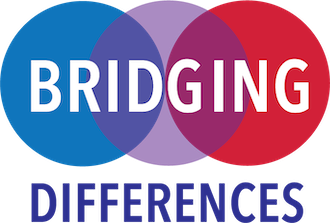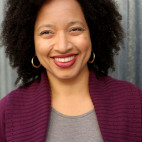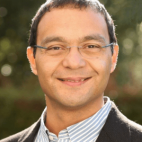
- Venue: Online
- Date: self-paced session, instructor led course
-
Price: Free to Audit; $169 for Verified Track
-
Course Overview
We encounter differences every day—differences in race, politics, gender, faith, and more. How can we connect across these differences, especially at a time of deep social polarization?
In this course, you will learn core research-based principles and strategies for fostering positive relationships, dialogue, and understanding across lines of difference. Created by the Greater Good Science Center, the course offers best practices that draw on scientific findings and case studies from real-world programs. It will zero in on how these evidence-based strategies can be applied to the divisions and conflicts that show up in our everyday relationships and in various sectors, with a particular focus on university and college campuses. The course builds on our popular Bridging Differences Playbook, which has already been used widely by leaders in government, education, corporate, and other settings.
It is taught by Professors Allison Briscoe-Smith and Rodolfo Mendoza-Denton—gifted and engaging teachers who draw on a wealth of knowledge in the science and practice of bridging differences. Joining them are researchers and practitioners who have led efforts to bridge racial, religious, political, and other divides in higher education and other settings.
Learners who register for the Verified Track will receive additional guidance in developing their own programs for bridging differences, particularly on college campuses.
Join us to make real and resonant shifts in your life, community, or campus, finding new ways to connect across lines of difference.
What you'll learn
- What it means—and doesn’t mean—to “bridge differences,” and when it might be unwise or unhealthy to try to “bridge” with someone else
- Why bridging differences is valuable to individuals and communities, and is especially important in higher education
- How to identify, understand, and guard against some of your own biases and prejudices
- How to communicate in ways that foster understanding and deeper connection rather than exacerbate divides
- How to find commonalities and connection with people who might seem different from you
- How to foster and support positive interactions between members of different groups who might be at odds with one another
How to Sign Up
The Bridging Differences online course is hosted on the edX platform. You'll need to create an edX account before registering for the course on edX.
Verified Track
Please note this course can be taken for free; simply choose "Audit This Course" to register at no charge. This instructor-led course lasts 10 weeks. After that time, course materials will no longer be available for Audit learners. In addition, Audit learners do not see sections of the course that allow learners to earn credit.
You can instead choose to take the course via Verified Track for $169. The verified version includes additional content to develop your own programs for bridging differences, particularly on college campuses. You'll also receive a certificate of completion when you finish the course and you will have access to course materials long term.
If you plan to use your course for job applications, promotions, or school applications, you may prefer to have a verified certificate. It’s also a great way to give yourself an incentive to complete the course and celebrate your success.
The production of this course was supported by a generous grant from the Arthur Vining Davis Foundation, with additional support provided by the Einhorn Collaborative.

